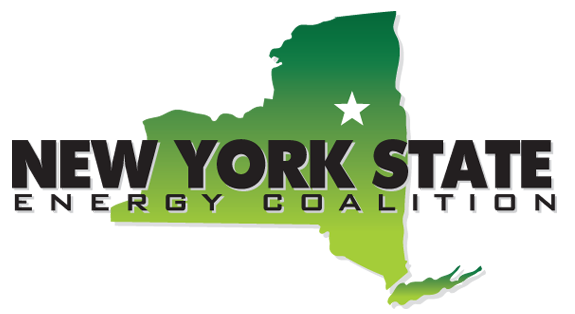Local Law 152
 Local Law 152 was created in 2016 and implemented in 2019 for all of New York City. The law states that all properties, except for one- and two-family homes in the R-3 dwelling category, must undergo periodic gas piping safety inspections. These inspections take place once every four years on a rotating schedule.
Local Law 152 was created in 2016 and implemented in 2019 for all of New York City. The law states that all properties, except for one- and two-family homes in the R-3 dwelling category, must undergo periodic gas piping safety inspections. These inspections take place once every four years on a rotating schedule.
The law was created to reduce the risk of gas explosions and fires for city dwellers and workers. If you are a landlord or property manager, following Local Law 152 can also help protect you from property damage, lawsuits, and fines. Failure to file a Gas Piping System Periodic Inspection Certification by the applicable due date may result in a civil penalty of $5,000.
What the law says
Local Law 152 states that all applicable properties must have their gas piping inspected regularly on a four-year schedule. Only a licensed master plumber (LMP) like East Coast Petroleum may perform inspections.
The LMP submits a Gas Piping Periodic Inspection Report (GPS1) to the building owner within 30 days of performing an inspection. Within 60 days of the inspection, the property owner must then file a Gas Piping System Periodic Inspection Certification (GPS2) with the New York City Department of Buildings (DOB). Whoever performs the inspection for you completes the certification, which is signed and sealed.
You may submit your GPS2 documentation through a city portal dedicated to this purpose. There is no fee to submit a GPS2 with the city https://www1.nyc.gov/site/buildings/property-or-business-owner/gas-piping-inspections.page.
FAQs
What parts of the building are inspected?
Any exposed gas piping from the point of entry to your building must be inspected. The following may be included:
- Mechanical and boiler room piping
- Service meters for your building
- Piping in public spaces, corridors, and hallways
Will your tenants be inconvenienced by gas shutoffs?
Your tenants may not even know your property is being inspected because it’s so unobtrusive. Piping within individual units is not inspected. There is no air pressure test with this inspection, nor does your service need to be interrupted.
 What if you fail your initial inspection?
What if you fail your initial inspection?
If your inspector finds anything with your gas piping that is an immediate danger, such as a gas leak, your gas will be shut off and the Utility will be called. All the normal precautions, like not using electronic devices or light switches, should be followed until the fire department has responded and the area has been made safe.
If there is nothing dangerous, but there are still things that need to be fixed, you have 120 days to remedy the issue and submit a new certification (Certification of Correction), which still must be signed and sealed by your LMP.
If repairs are necessary that may take longer than the 120 days, which can happen, especially during winter, you have 180 days to perform the repairs and submit your documentation through the portal. However, your licensed master plumber has to indicate that you need extra time when the GPS1 inspection report is filled out.
How do you know your inspection schedule?
Under normal conditions, the city keeps an inspection schedule online. It organizes inspection timelines by district, so you should check which district your property is in here. The last two years have been anomalies, though, so you should review the City information about inspection extensions.
If LL152 applies to your building but the building does not contain gas piping?
If your building does not contain gas piping, a Gas Piping System Periodic Inspection Certification, signed and sealed by a Registered Design Professional (a New York State licensed professional engineer or registered architect) or a Licensed Master Plumber, stating that such building contains no gas piping must be submitted to DOB. No further action is necessary.
If LL152 applies to your building, the building contains gas piping, and the building is currently supplied with gas hire a Licensed Master Plumber (LMP) to Inspect the Gas Piping System in Your Building. LMPs are licensed by DOB to perform plumbing work in New York City. DOB encourages anyone hiring an LMP to check both their current license status and disciplinary and voluntary surrender records.
If are unable to have your building inspected by the deadline of your reporting year, you can request a one-time 180-day extension of the due date using the online portal. You must have your building inspected before the extension period expires.
If LL152 applies to your building and your building contains gas piping, but the building is not currently supplied with gas and has no appliances connected to the gas piping you must submit to DOB, through the online portal, the following two documents:
- a signed statement from the utility company containing the following:
- the last date gas was supplied to the building; and
- the date on which gas service was no longer provided to the building; and
- a signed statement from the owner of the building containing the following:
- a certification that the building no longer receives gas service; and
- a certification that the building no longer contains appliances connected to gas piping.
To request a statement from your utility company, contact:
- Con Edison: (800) 643-1289, select option #2
- National Grid: nycdisconnects&reconnects@nationalgrid.com
How long do you need to keep your gas inspection documentation?
All documentation relating to Local Law 152 must be kept by the property owner for at least 10 years following inspection and submission. Failure to comply can result in civil penalties of up to $10,000.
How can you prepare for a gas piping inspection?
The best way to prepare for your NYC gas piping inspection is to keep up with the maintenance on your property’s gas piping. If you find repairs beyond your knowledge or run into problems, please contact us. Here are some typical gas piping problems.
- Leaks
- Inappropriate materials
- Inadequate support
- Rusting
- No drip leg
- Missing shut-off valve
- Improper connections
- Plastic pipe exposed above grade
- Piping in chimneys or duct systems
- Copper tubing not properly labeled
The consequences of all of these problems are possible gas leaks and explosions.






